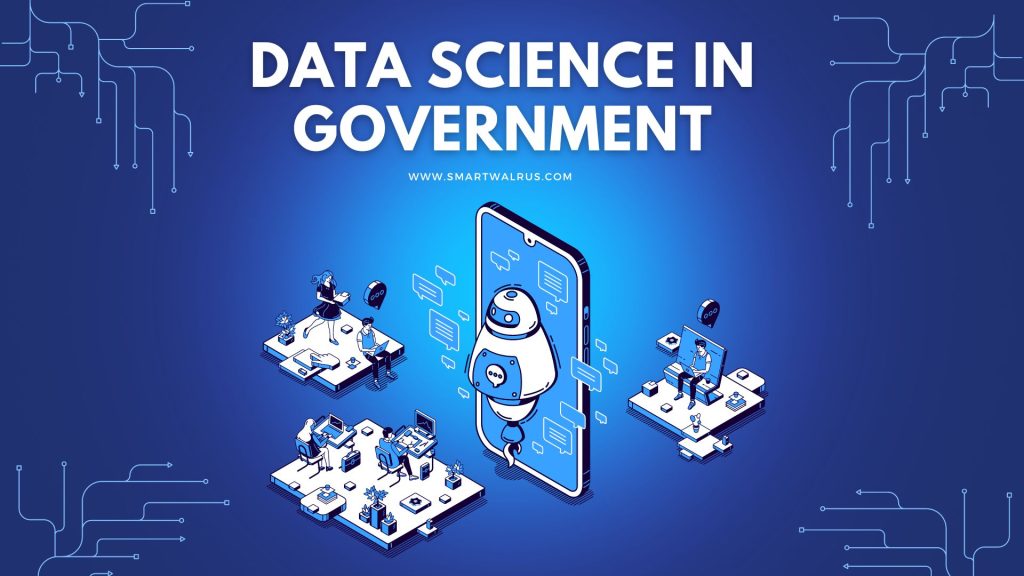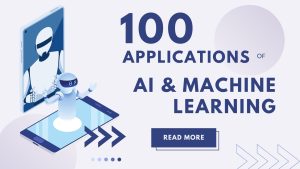A Primer on Data Science in Government: From Projects to Problems

Data science is a field that has grown exponentially in the past few years. It has become ubiquitous, and it all stems back to its roots as a quantitative field of research. Simply put, data science is the marriage between computer science and quantitative methods (such as statistics) in order to tackle complex problems.
The world of government is ripe with opportunities for data scientists. The sheer volume of information available at any one time—on everything from taxes to workforce demographics—creates what’s known as a big data problem.
Because of this, governments are increasingly turning to digital and data-driven solutions in order to not only solve but also monitor their communities more effectively. There are several reasons why government jobs as a whole are becoming some of the most sought-after positions for candidates looking to enter the industry at an entry-level or mid-level position. Here’s a quick overview:
Data-Driven Government Programs and Services
Nearly every government program and service is driven by data these days. Here are some examples:
But what you have to realize is that data-driven government programs and services are important for a number of reasons.
For one, it helps to make sure that citizens are getting the most out of their tax dollars. It also helps to prevent fraud and abuse, which can often be an issue in government. Finally, data also allows the government to ensure that its programs are sustainable and have future viability.
Data Analytics Is Becoming a Standard Tool for Government Workers
As the amount of data available becomes more and more significant, the great thing for the government is that data can be an incredible asset. But it’s not just about the data itself. It’s about the correct analysis of all that data that has the power to create change.
Government agencies and departments are continually pushing the limits of what data can do, and how that data can be analyzed and visualized. For example, the U.S. Department of Agriculture uses data to help predict crop yields and distribution. This can then help farmers decide where to plant and when to harvest.
One of the most prominent ways that involve data science is the US Department of Homeland Security. This branch of the US government has begun to invest heavily in programs related to cybersecurity. This has led to the creation of the National Institute of Standards and Technology (NIST). The goal of the NIST is to develop standards for cybersecurity, which is driven by a number of data analytics programs.
There Are Many Jobs Available in Government That Require Data Science Skills
Simply put, the need for data science skills is growing in almost every sector of the government workforce. There are jobs that focus on data collection and preparation, as well as jobs that focus on data analysis and modeling. But the key is that data science skills can be found across a range of departments and functions.
For example, a data scientist might be needed to augment data on the condition of bridges and roads. Or a data scientist in the State Department can find themselves using data to improve the visa application process. A city manager can use data to improve the delivery of city services and ensure compliance with federal regulations.
These are just a few examples of what is available in the government sector that is looking for data scientists. But don’t be fooled by the position title. Oftentimes, the job doesn’t necessarily involve working with data at all. For example, a federal government employee might be working on improving the business process of how their department processes its applications.
If you’re looking to enter the world of government, it’s important to consider where you would be most effective and where you could have the biggest impact. This might mean focusing on a particular area or a particular government function.
READ MORE: How Data Science Can Help Nonprofit Organizations
How to Become a Data Scientist in Government
Now that we’ve explored the reasons for the growing interest in data science and how important it is in the world of government, we can look at how you can become a data scientist in government. There are a few different ways that you can go about it.
One is to research specific government departments and functions that might be a good fit for you. This can help to narrow down your search, as well as give you a better idea of the level of experience required to be successful in a specific area.
Once you’ve done this, it’s important to research specific jobs that are available within specific government departments. Here are some of the top government job sites available:
Technical Skills for Becoming a Data Scientist
As mentioned, the marriage of computer science and quantitative methods in order to address big data problems is known as data science. But before you start diving headfirst into the depths of computer science, it’s important to understand the basics of statistics.
A lot of what you’ll learn as a data scientist in government is grounded in statistics, data visualization, and other quantitative methods. But it’s important to also take time to learn some basics of programming and computer science. If you’re interested in advancing your career in government, it’s important to get a broad overview of all that data science actually entails.
Data Science in Government: The Future
It’s important to recognize that the growth of data science in government is just the beginning. The first is the increasing prevalence of automation and artificial intelligence (AI). This means that data science is likely to become even more crucial, particularly as it relates to compliance.
The second issue is the rise of blockchain technology. This is likely to have a major impact on the way that data is stored, processed, and distributed. It’s important to note that blockchain is not only a new way to store data but also a way to verify data integrity. Data science is likely to be a critical component of blockchain technology.
Finally, data science is becoming more recognized by society in general. By this, we mean that government agencies will become more aware of their own data, allowing for a more sophisticated analysis of what data is available, how it’s collected, and how it can be used to the best effect.



Related Data Analysis
7 Data Analysis Tools in Excel
How To Become A Data Analytics Manager
The Skills You Need To Master Data Science
What Is a Data Science Unicorn?
The Statistics Skills Every Data Scientist Needs to Master
5 Steps To Developing A Health Informatics Career
How Data Science Can Help Nonprofit Organizations
7 Data Science Specializations You Should Pursue If You Want to Get Ahead